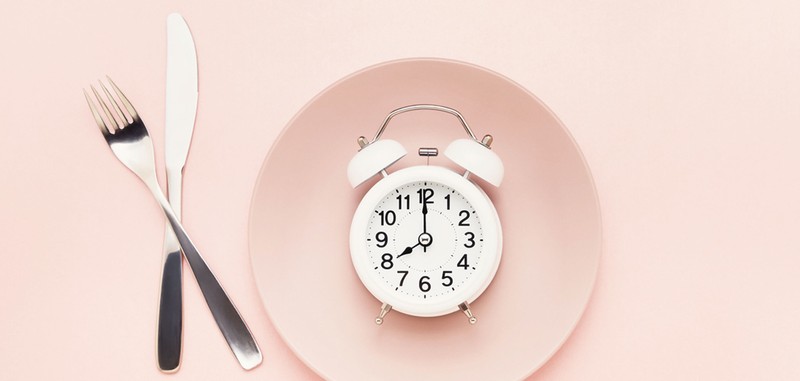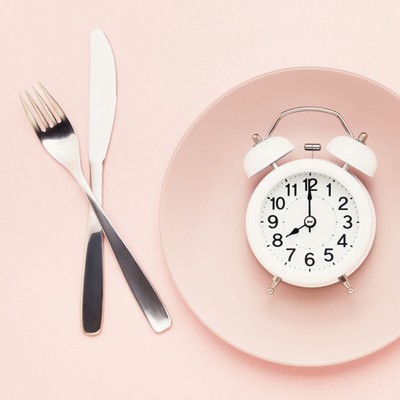

What You Need To Know About Your Metabolism
There’s More To Your Metabolism Than You Think
“Metabolism is a broad term encompassing all the chemical processes going on within your body – from circulation to breathing. To ensure you can carry out all these processes, your metabolism helps your body convert energy from the food you eat into fuel. What most people think of when they think of metabolism is actually what’s known as basal metabolic rate (BMR). This is the number of calories your body needs to simply do its job existing – fuelling your cells and keeping your heart pumping, your blood circulating, lungs breathing and brain neurons firing. You’re always burning calories, even when you sleep. Although you may have a naturally faster or slower metabolism, lifestyle has a big impact and your metabolism – or BMR – is affected by how active you are, your size and body composition.” – Emily Servante, global trainer education manager at Ultimate Performance
Lifestyle Choices Matter
“As we age, we start to lose muscle mass, which can influence metabolism. Furthermore, older adults tend to be less active than their younger selves. This doesn’t just mean the calories burnt through exercise is lower, but it also means we use our muscles less, leading to muscle loss. Most people think their metabolism slows as they put on weight more easily with age. In fact, it’s far more likely down to the fact we become less active with age, and eat and drink more. Plus, many women in their forties and fifties don’t lift weights and eat low amounts of protein, which is a recipe for disaster when it comes to metabolism. As muscle mass is a large component of BMR (muscle burns three times more calories at rest than fat), this can explain why you put on weight as you age. This can be equivalent to burning up to 100 calories less per day, which adds up over time.” – Emily
Hormones Play A Part
“From their early to mid-forties, women experience a dip in oestrogen, progesterone and human growth hormone. Unfortunately, metabolism follows suit and unless you actively build muscle in this decade and beyond, your metabolism will slow. We lose 1% of muscle in the years up to 50 and this increases by as much as 2% per year once we reach 50. Research shows older adults typically burn almost 30% fewer calories. Increasing your protein intake and adding strength training to your regime is essential. A woman can have a higher metabolic rate in her fifties than her thirties or forties.” – Kathryn Danzey, founder of Rejuvenated
Walking More Is A No Brainer
“There are 24 hours in the day. If you sleep for eight hours and you exercise for one hour, this leaves 14 hours to be physically active and burn energy. This ‘non-planned’ exercise time accounts for 15% of the energy you burn, so is not to be underestimated. People who are generally more active tend to have higher metabolisms, successfully maintain their weight and are healthier overall.” – Dr Folusha Oluwajana, GP and personal trainer
Doing Some HIIT Is Great
“While all exercise increases your metabolism, strenuous exercise that uses anaerobic pathways, such as HIIT [high-intensity interval training] and strength training, trigger the EPOC effect – this is when your body continues to use oxygen at a higher rate and burns calories for hours after you have finished a workout. It is believed to carry on for several hours, even up to 24 hours. If you can incorporate some form of interval training into your week, do.” – Folusha
Cutting Back On Calories Won’t Help
“There can be a temptation to reduce calories to maintain weight but this can lead to muscle loss, which can be even more detrimental to the metabolism in the long-term. Instead, prioritise lean protein and reduce refined carbs (i.e., white carbs such as white bread, pasta and rice) to maintain a healthy metabolism. Think about what you’re drinking, too. Did you know alcohol decreases the body’s fat burning ability by up to 73%? The body sees alcohol as a poison that it needs to get rid of and focuses on the task of detoxification rather than burning calories. Start your day the right way, too – a glass of fruit juice with breakfast can contain over 20g of sugar, which leads to spikes in blood sugar and increased fat storage.” – Kathryn
Protein Is Linked To A Higher Metabolism
“While a balanced diet of protein, carbohydrates and fats is essential to supporting metabolism, protein is particularly important. Eating adequate amounts of protein will help you maintain lean muscle mass, and higher muscle mass is associated with an increased rate of metabolism, as muscle requires more energy to maintain than fat. Plus, protein has a slightly higher thermic effect than other food types, meaning your body uses more energy to digest protein than it does carbs or fats. On the other hand, a high intake of refined carbs, sugars and saturated fats and a diet that is low in fibre can negatively impact metabolic health.” – Folusha
Fats Are Also Important
“Consuming the right type of fats can help to increase metabolism. A type of fat called medium-chain triglycerides (MCTs) has been shown to be particularly beneficial and one to two tablespoons daily can increase metabolic rate by as much as 5% over a 24-hour period. MCTs naturally occur in some foods, including coconut oil, palm kernel oil, whole milk and butter, and can also be extracted from food to create a supplement like MCT oil. Smaller nutrients are important, too. Foods rich in selenium and iodine – such as seafood, meat, nuts, seeds and seaweed – support thyroid health, which plays a key part in governing metabolism.” – Kathryn
It’s All About Three Meals – And No Snacking
“Your metabolism is like a fire. If you add kindling, it will fire up but quickly die down. Yet if you put a big log on the fire, it will burn for hours and give a lot more heat. This explains why eating little and often is a myth. Technically, eating bigger meals requires more work from the digestive system and is preferable when it comes to a healthy metabolism.” – Emily
Finally, Make Sure You Are Sleeping Well
“We know how important sleep is for overall health, but it also plays a central role in a healthy metabolism. Getting eight hours of sleep on a regular basis will help your body to burn more calories and use nutrients more effectively. Don’t underestimate the importance of staying hydrated, either. Evidence shows being hydrated increases metabolism – one study found that drinking 500ml of cold water increases energy consumption by up to 3% for 90 minutes. Water is also needed for the metabolism of fat, so aim to drink at least two litres daily.” – Kathryn
For more, visit FitDocFolu.com, UltimatePerformance.com and Rejuvenated.com
DISCLAIMER: Features published by SheerLuxe are not intended to treat, diagnose, cure or prevent any disease. Always seek the advice of your GP or another qualified healthcare provider for any questions you have regarding a medical condition, and before undertaking any diet, exercise or other health-related programme.
DISCLAIMER: We endeavour to always credit the correct original source of every image we use. If you think a credit may be incorrect, please contact us at info@sheerluxe.com.

